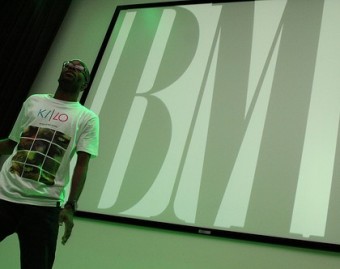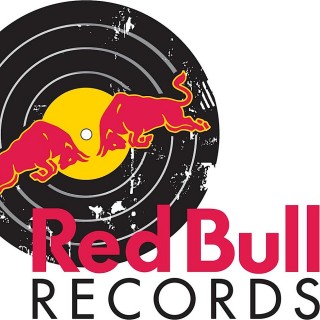An Insight Into Current Trends In Music Licensing
TThe music industry is constantly evolving and over the last decade it has gone through many changes. The way that people now discover music, purchase and listen to music has changed. Amidst these changes, Music licensing has become a critical alternative revenue stream for artists, labels and publishers.
Particularly over the last few years, music licensing has emerged as a major focus for both revenue and exposure for the music industry. Artists and labels can make money licensing their music to computer games, television shows, web based videos, corporate videos, advertising commercials, indie and feature films, documentaries, mobile phones and apps, and many other new media outlets.

Image credit: chadjwilson on Flickr
Music licensing provides direct revenue from licensing fees and also from royalties derived from some sync placements. It creates exposure for artists and results in more sales of their music. Many artists today earn more money from getting their music licensed than they do from touring and from actual sales of their music (as we covered in a recent Stand Above The Noise interview with UPPM). One good sync placement on a popular TV show, in a film or on an advertising commercial, has now become a career making factor for artists and many artists have been discovered through a sync placement and gone on to have big careers.
Music licensing is a complicated process and is now such an important part of an artists’ career that it is critical to get your approach right from the start. Most music supervisors and industry professionals today will say that the best chances for success getting your music licensed is to work with music licensing companies as opposed to seeking out and approaching individual music supervisors.
When approaching music licensing companies, there are many different options available to artists and it is important to create a proper music licensing strategy for your music. Should you work with companies that retitle works for a share in PRO royalties? Should you do an Exclusive deal with a music licensing company or Non-exclusive? What is the best way to submit music to Music Supervisors, Music Branding Companies and Music Licensing Companies? By understanding the way that music licensing works and creating a strategy that suits you and your music you will have the best chances of success and making money getting your music licensed.

Image credit: sko11ie on Flickr
YouTube has become a great ally to the music licensing industry and has created an incredible new platform for music licensing opportunities. The huge amount of content and the simple accessibility of YouTube makes it a true and effective focus for advertising and a new trend has developed in advertising: internet based advertising videos. These are normally “viral” type clips, or “behind the scenes” or “making of clips”. These can be short documentary style clips that ad agencies create and post on the web to further market a brand and perhaps reach a different audience. They may depict the actual making of a commercial, or interview people involved with a brand or product. They may be a short clip showing highlights of a brands product launch, or an extended and more detailed commercial for a product as opposed to the original 15 or 30 second television commercial. These clips are generally posted online around the same time as the television commercial is broadcast and are a way that Ad Agencies are looking to gain further exposure for a brand in the online space.
Web based advertising is a growth area for music licensing and web based clips featuring a song by an indie artist will often link to the song on Itunes leading to more downloads for the artist as well as the new exposure they have gained. Web-based advertising clips use a lot of music and nearly always will feature music by independent artists. Fees for online usage range from $500 to $5,000 and up to $10,000 per song for profile brands and larger companies.
Music branding is another new and rapidly growing area of the music licensing industry. Music branding is where brands will use the power of music and an association with an artist to create awareness and an affinity between a product and their target audience. Music branding disguises traditional advertising and makes the artists and the music the main attraction for the target audience. As the area of music branding develops, brands and agencies are creating more and more exciting ideas to utilize music partnerships with brands and artists. Music branding has seen lifestyle brands, in a way, becoming the new record labels. Music branding strategies aren’t just limited to tour sponsorships and licensing songs for TV commercials. Now brands are beginning to offer to artists services that were once strictly the role of record companies.

Red Bull Records
Global brands Red Bull and Mountain Dew have created record labels with credibility and are working with respected indie buzz bands. Other global brands such as Coke, Target, Levi’s, Converse, American Express, Mercedes Benz, Dr. Martens, Nike and Bacardi, are all creating music alliances with indie artists through creative music branding strategies. Music branding deals with artists are now common and long gone is any stigma attached to artists working with brands. A band’s decision to do business with a beverage company or a fashion label, or car manufacturer is now no different from their decision to sign with a record label or a publisher. With money and resources, brands now have the ability to break and establish artists to a new and broader fan base. In many ways the deals offered by brands to artists are fairer and more favourable than deals offered by traditional record labels.
Music licensing is a rapidly developing and growing area of the music industry, and with global revenue from sync licensing close to $3billion annually – it is an area that will continue to reward artists if they take the right approach.
Winston Giles is the CEO and Founder of The Music Licensing Directory www.musiclicensingdirectory.com, a revolutionary new platform created for artists, bands, producers & industry professionals that lists & analyzes 400+ companies globally that license music into Film, TV, Advertising & Games and provides regular opportunities for getting your music licensed.


Comments